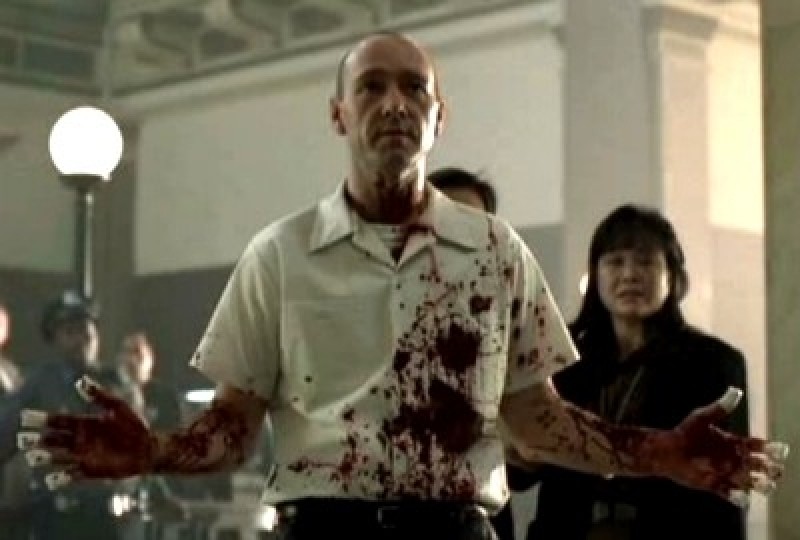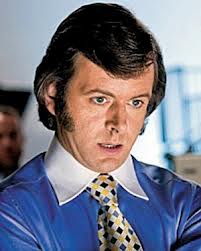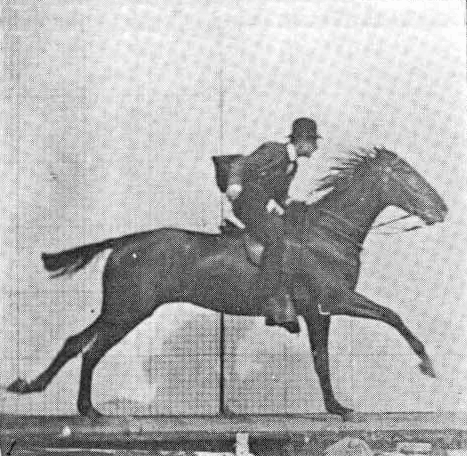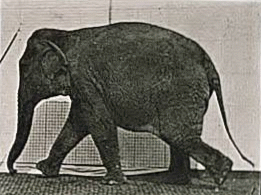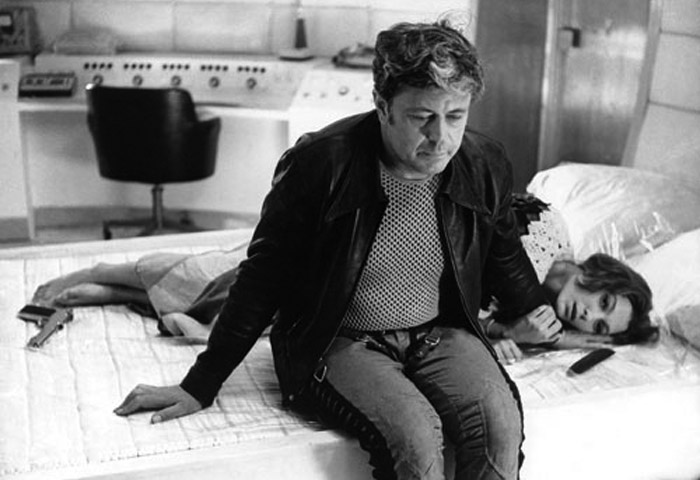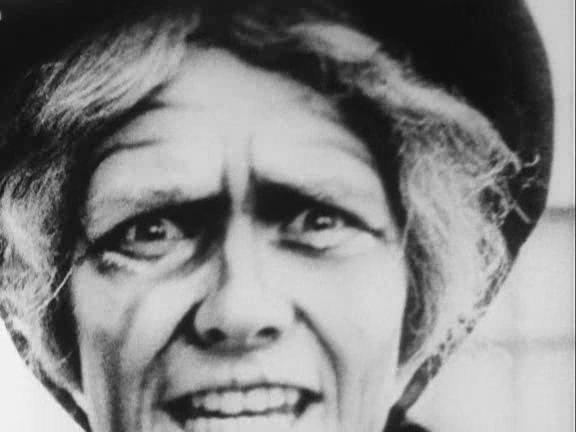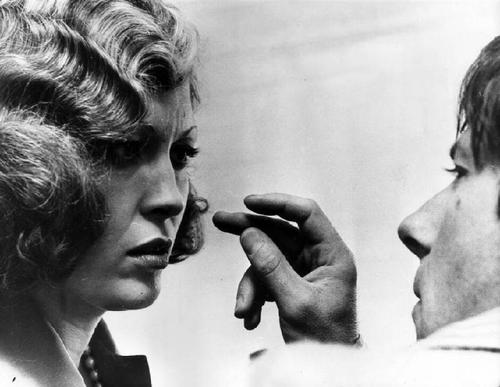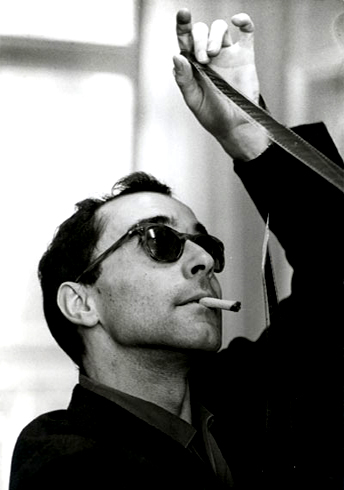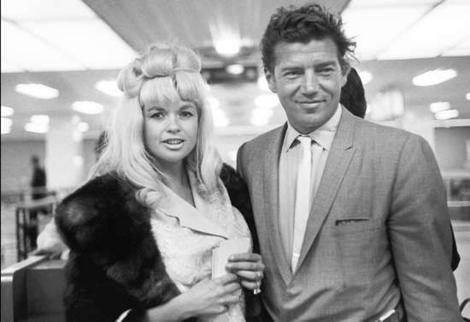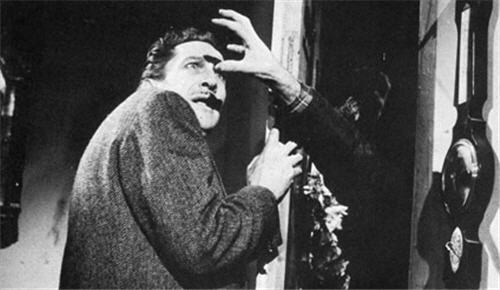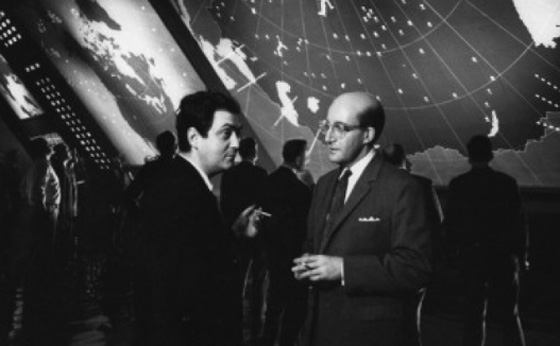
Michelangelo Antonioni was still three years from the U.S. release of his “hippie film,” Zabriskie Point, when he sat for a Playboy Interview in 1967. But unsurprisingly, discussion got around to American hippies, a subject that always fascinated him. He suggested that young people were trying to slip out from under old masks, using new ways of communicating, hoping to become more honest. But more than four decades later, we seem to be covering up as much as ever in our information-rich, interconnected world, in what’s supposed to be a time of great transparency. We may be hiding behind an icon rather than a mask, but the artifice remains. We never really lose the blueprint to reconstruct that wall. An excerpt:
“Playboy:
Some people over 30 seem to feel that today’s youth is a lost generation, withdrawn not only from commitment but, in the case of the hippies, from reality. Do you disagree?
Michelangelo Antonioni:
I don’t think they’re lost at all. I’m not a sociologist nor a psychologist, but it seems to me they are seeking a new way to be happy. They are committed, but in a different way–and the right way, I think. The American hippies, for example, are against the war in Vietnam and against Johnson–but they combat the warmongers with love and peace. They demonstrate against police by embracing them and throwing flowers. How can you club a girl who comes to give you a kiss? That, too, is a form of protest. In California’s ‘loving parties,’ there is an atmosphere of absolute calm, tranquility. That, too, is a form of protest, a way of being committed. It shows that violence is not the only means of persuasion. It’s a complicated subject–more so than it seems–and I can’t handle it, because I don’t know the hippies well enough.
Playboy:
Sometimes that tranquility you spoke of is induced by hallucinogenic drugs. Does the use of such drugs alarm you?
Michelangelo Antonioni:
No, some people have negative reactions or can’t stand hallucinations, but others stand them extremely well. One of the problems of the future world will be the use of leisure time. How will it be filled up? Maybe drugs will distributed free of charge by the government.
Playboy:
You’ve always emphasized both the importance and the difficulty of communication between people in your films. But doesn’t the psychedelic experience tend to make people withdraw into an inner-directed mysticism, even drop out of society altogether? And doesn’t this tend to destroy communication?
Michelangelo Antonioni:
There are many ways of communicating. Some hold the theory that new forms of communication between people can be obtained through hallucinogenic drugs.
Playboy:
Would you want to try some yourself?
Michelangelo Antonioni:
You can’t go to an LSD or pot party unless you take it yourself. If I want to go. I must take drugs myself.
Playboy:
Have you?
Michelangelo Antonioni:
That’s my business. But to show you the new mentality: I visited St Mark’s in Venice with a young woman who smokes pot, as do most young people in her environment. When we were above the gilded mosaics–St. Mark’s is small and intimate–she exclaimed, ‘How I’d like to smoke here!’ You see how new that reaction is? We don’t even suspect it. There was nothing profane in her desire to smoke; she merely wanted to make her aesthetic emotions more intense. She wanted to make her pleasure giant-size before the beauty of St. Mark’s.
Playboy:
Does this mean that you believe that the old means of communicating have become masks, as you seem to suggest in your films, that obscure communication?
Michelangelo Antonioni:
I think they become masks yes.”



